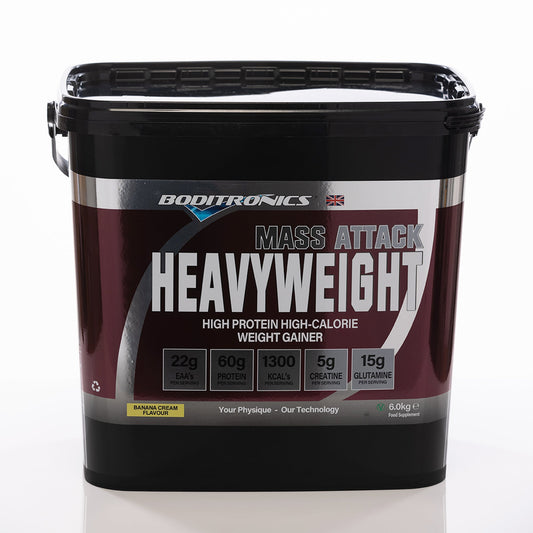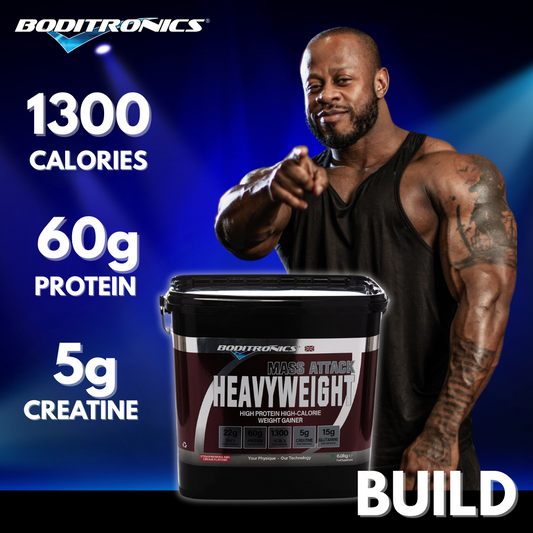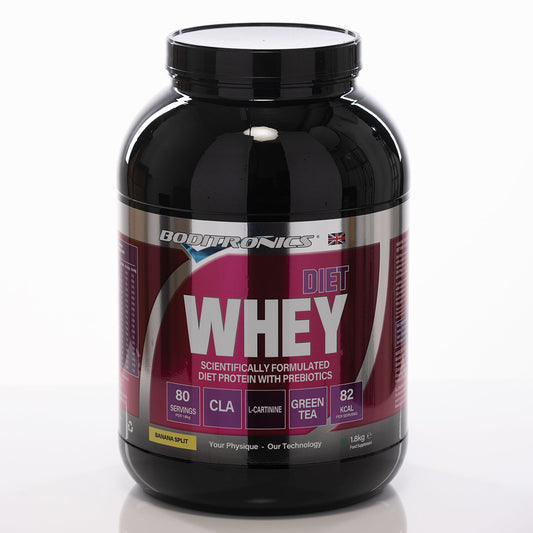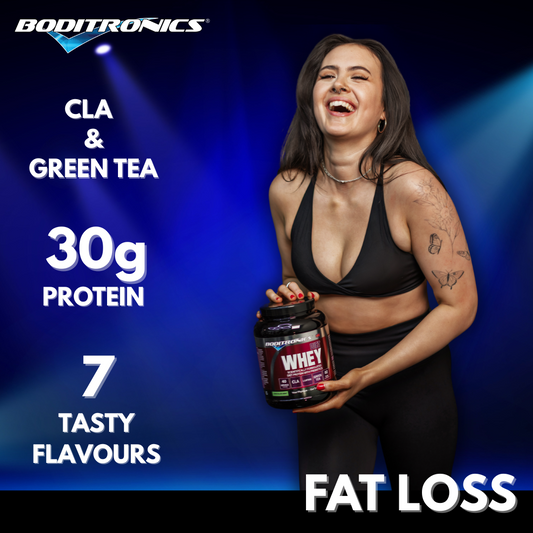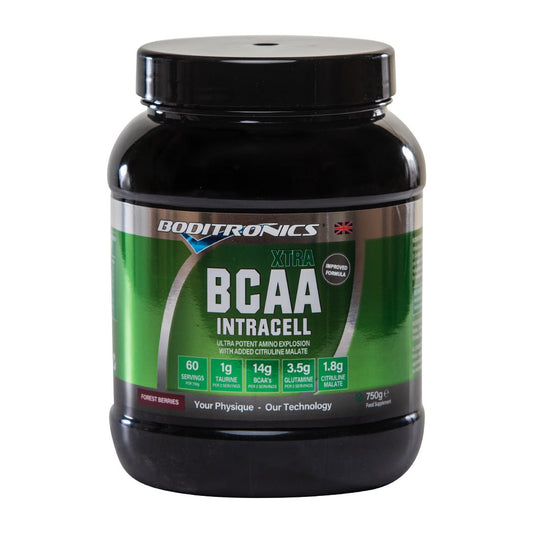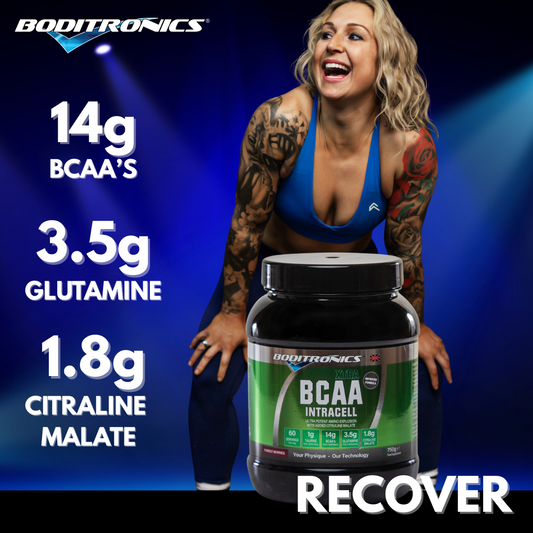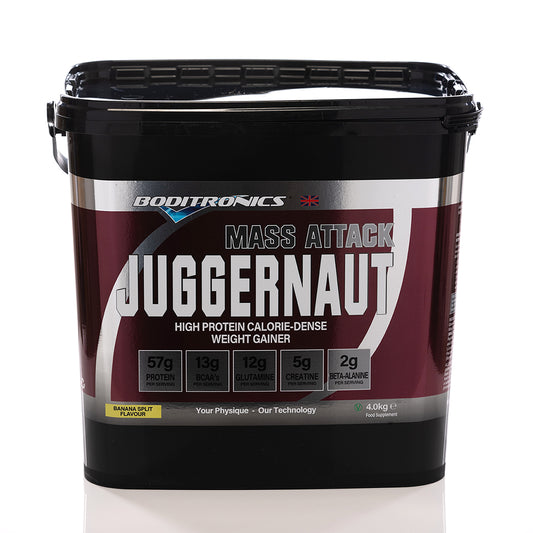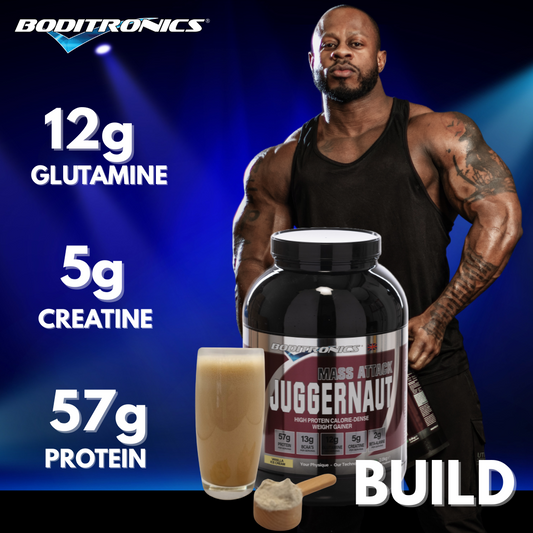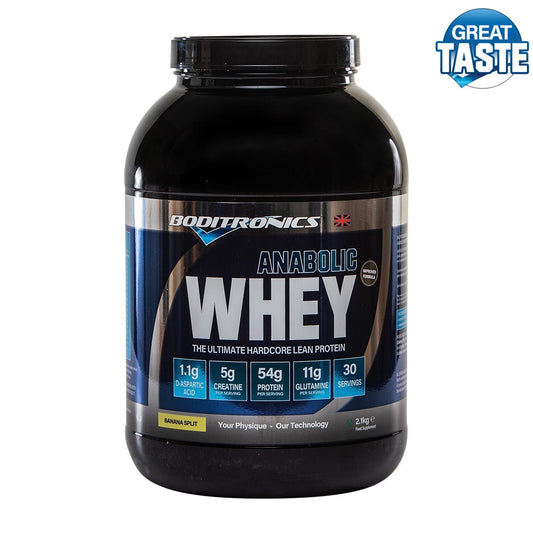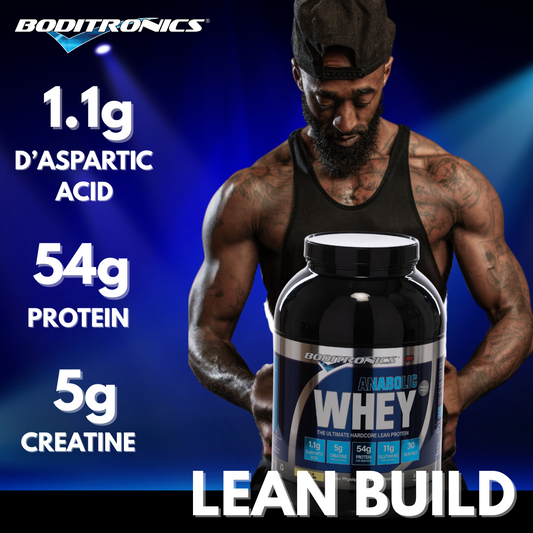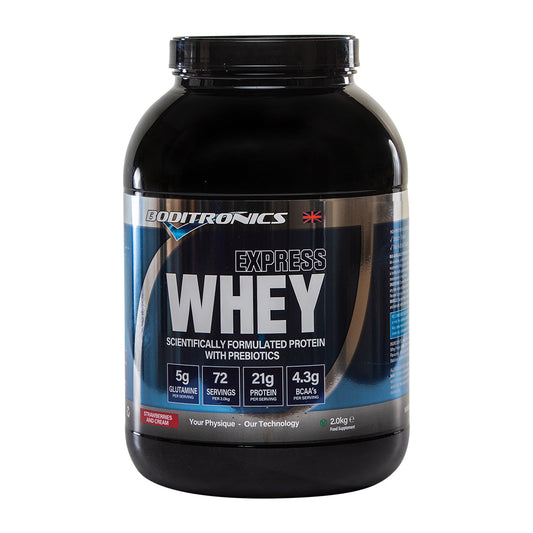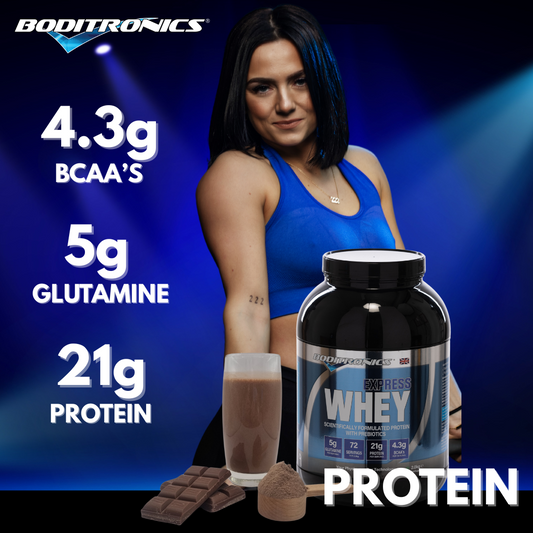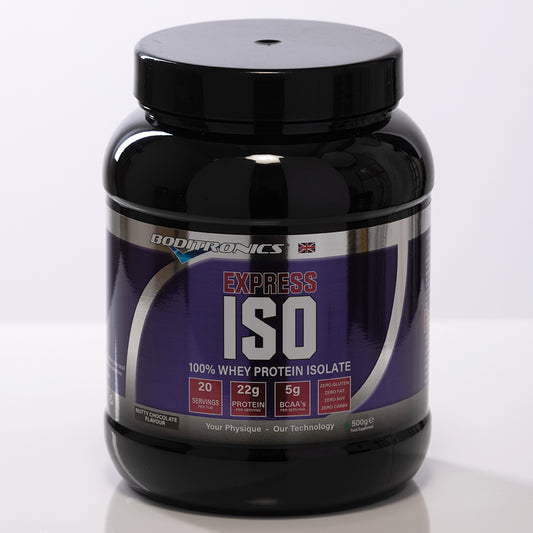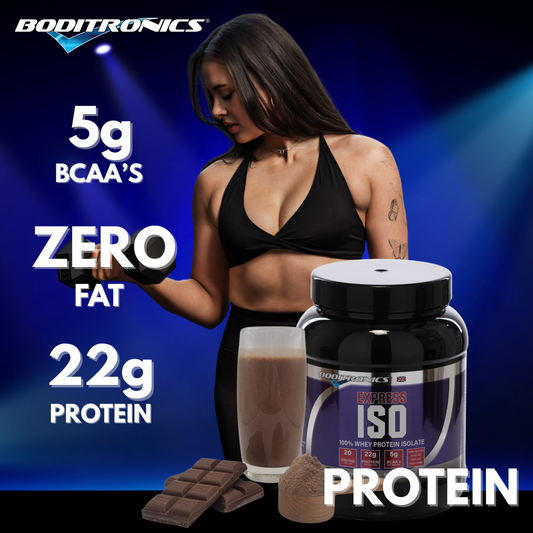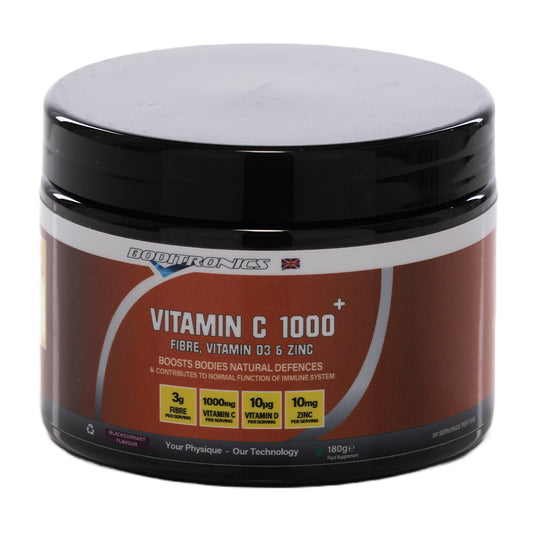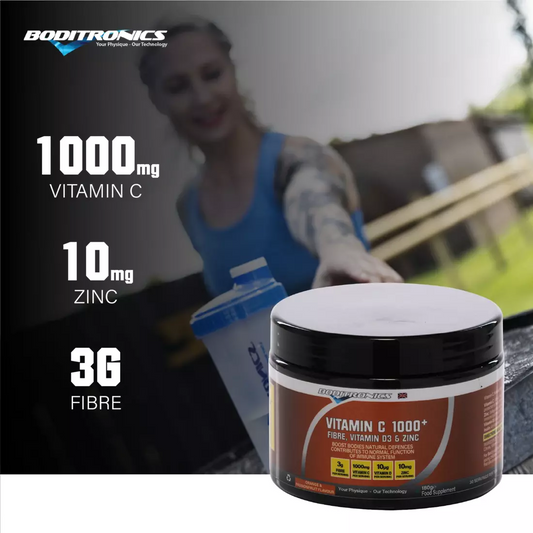Protein powders are a great tool for weight gain! You can blend them into shakes or smoothies with ingredients like milk, fruits, nut butter, and oats to increase your calorie intake. Have a shake post-workout to support muscle growth, and enjoy protein-packed snacks between meals to boost your overall calories. Get creative with your recipes and have fun experimenting! Make sure you use them as part of a balanced diet or it could lead to excessive protein intake.

| Mass Gainer - Mass Attack Heavyweight - Flavoured Mass Gain Protein Powder - 2kg & 6kg | ||
Protein for weight gain the Science bit
Using protein for weight gain involves strategic consumption and incorporation into your daily routine. Here's a breakdown:
Increase Overall Caloric Intake: To gain weight, you need to consume more calories than you burn. Protein powders can help by providing a concentrated source of calories. Blend protein powder into shakes or smoothies with ingredients like milk, nut butter, oats, fruits, and yogurt to create calorie-dense beverages.
Post-Workout Nutrition: Consume a protein shake containing diet whey protein or a blend of protein within 30 minutes to an hour after your workout. This helps replenish glycogen stores and provides amino acids for muscle recovery and growth, promoting weight gain.
Between Meals: Enjoy protein shakes as snacks between meals to increase your overall calories throughout the day. This can be especially helpful if you have a fast metabolism or struggle to eat large meals. Mix diet protein powder with milk, fruits, or nut butter for a satisfying and nutrient-dense snack.

Bedtime Snack: Consuming a protein shake before bed provides your muscles with a sustained release of amino acids overnight, supporting muscle recovery and growth while you sleep. Choose a slow-digesting diet protein powder or blend for optimal results.
Balanced Diet: While protein is important for muscle growth, don't neglect other macronutrients like carbohydrates and fats. Ensure your diet is balanced and includes a variety of nutrient-dense foods to support overall health and weight gain.
Consistency: Consistently consuming protein shakes and incorporating them into your daily routine is key for effective weight gain. Aim to have a protein-rich snack or shake at regular intervals throughout the day to support your goals.
Does Protein help repair, build, and maintain muscle tissue?
Off Course! Here's why...
Protein indeed plays a vital role in repairing, building, and maintaining muscle tissue. When you engage in physical activities that challenge your muscles, such as weightlifting or intense workouts, tiny tears occur in the muscle fibres. In response, your body initiates a repair process to heal and rebuild these fibres, a process known as muscle protein synthesis.
Protein serves as the primary nutrient required to repair muscles. Within protein are amino acids, often referred to as the building blocks of muscle. These amino acids are essential for repairing damaged muscle tissue and facilitating the growth of new muscle fibres. Essentially, protein provides the necessary raw materials for your body to rebuild and strengthen muscles after exercise-induced damage.

Moreover, protein isn't just about repair – it's also about growth. Eating protein, particularly in combination with resistance training, signals your body to increase muscle protein synthesis. This process leads to the growth and development of muscle tissue, resulting in increased muscle mass and strength over time. Therefore, adequate protein intake is crucial for anyone looking to build muscle and improve their physical performance.
Furthermore, protein isn't only essential for building and repairing muscles; it's also vital for maintaining them. Once you've built muscle through exercise and proper nutrition, it's important to continue consuming enough protein to sustain that muscle mass. Protein helps prevent muscle breakdown, ensuring that your hard-earned gains are preserved, even during periods of calorie restriction or inactivity.
In summary, protein plays a multifaceted role in muscle health, serving as both a repair mechanism and a catalyst for growth. By including sufficient protein in your diet from high-quality sources such as lean meats, poultry, fish, eggs, dairy products, legumes, and protein supplements, you can support your fitness goals, promote muscle recovery and growth, and maintain optimal muscle health over the long term.
Does protein help depression?
While protein alone is not a cure for depression health issues, including adequate protein as part of a balanced diet can contribute to overall well-being and support mental health. It's essential to prioritize a varied and nutrient-rich diet, along with other lifestyle factors such as regular exercise, sufficient sleep, and stress management, to optimize mental health outcomes.
Suffering with depression or know someone who is?
Is it possible to eat too much protein?
Yes, it is possible to eat too much protein. While protein is essential for overall health, consuming excessive amounts can lead to various health issues. These may include kidney strain, dehydration, digestive discomfort, nutrient imbalances, and weight gain. It's important to balance protein intake with other nutrients and to avoid relying solely on protein supplements or high-protein diets.
About the Author:
Frankie Copley boasts an impressive 17-year tenure within the dynamic realm of Nutrition and Fitness. Her journey has been a testament to her unwavering dedication, evolving from a Bodybuilder to conquering Duathlons (securing 2nd and 3rd places overall), mastering Triathlons (ranking within the top 10 in her age group), and embarking on numerous Half Marathons and a full Marathon. Currently immersing herself in the world of CrossFit, Frankie's passion for fitness knows no bounds.
Throughout her athletic endeavours, Frankie has navigated diverse supplement regimens and dietary requirements tailored to each sport. Not content with personal achievement alone, she channels her expertise as both a personal trainer and nutritional therapist, guiding others on their wellness journeys.
What fascinates Frankie most is the unique interplay between individuals and nutrition, recognizing that a singular approach doesn't suffice for everyone. For her, the cornerstone of any effective nutritional strategy lies in empowering individuals with accessible knowledge, equipping them with the discernment to make informed dietary choices irrespective of their athletic pursuits. She firmly believes that making nutrition transparent will give them a better chance to make informed decisions, but that if they become stuck all they have to do is ask!
